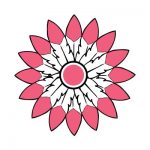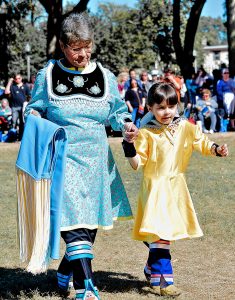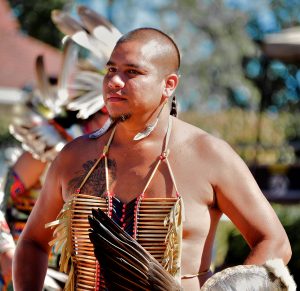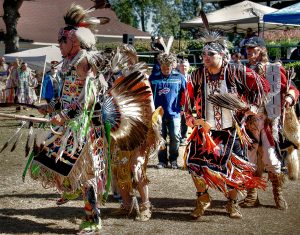NRNC Programs

Supportive Transitional Housing
Abbey House Transitional Home
Abbey House is a secured five bedroom residence located in a quiet residential area that offers shelter and support to Indigenous women with or without children, who are experiencing crisis in their lives. The aims of Abbey House are to provide support while clients overcome crisis and homelessness by assisting them in achieving emotional, spiritual, mental, and physical well-being.
Urban Indigenous Homeward Bound -2020 Fall Applications are now being accepted.
Urban Indigenous Homeward Bound Program Application 2020A four-year integrated program, that provides innovative wrap-around services designed to help inadequately housed or homeless Indigenous mother-led families to earn college diplomas, start careers, and achieve economic self-sufficiency. The St. Catharines, Ontario location also offers on-site day care.
The unique cultural, historical and demographic context of Ontario’s urban Indigenous communities, and the distinct challenges faced by urban Indigenous single mothers living in poverty, Friendship Centres adapted the WoodGreen Homeward Bound model into the Urban Indigenous Homeward Bound. This project will address the unique needs and challenges of homeless and precariously housed urban Indigenous single mothers living in poverty in seven of Ontario’s Friendship Centre communities.
At the same time, early years and child care have become clear priorities of both the federal and provincial governments. At both levels, significant policy commitments have been made to make child care more accessible for all Canadians. At the same time the Truth and Reconciliation Commission has pushed Indigenous child care and development into the national consciousness. The Truth and Reconciliation Commission has called on federal, provincial, territorial and Indigenous governments to “develop culturally appropriate early childhood education programs for Aboriginal families.” [1]
Family and Health Programs
Aboriginal Healthy Babies/Healthy Children -Ages 0-6
The overall goal is to assist all Indigenous families to provide the best opportunities for health development for children through education, family home visiting, service coordination and referrals. An equally important objective is to ensure that the program addresses the needs of children at risk, and ensure they have access to services and supports to address their needs.
Canada Prenatal Nutrition Program (CPNP) Age 0-1
The goal of this off-reserve Aboriginal program is to improve the health of Indigenous mothers, fathers and their babies up to one year of age and their families that live off reserve. CPNP provides food supplements, counselling, support, education, referral to other services and counselling for at-risk pregnant women. Counselling addresses lifestyle issues that can affect the baby, such as smoking, alcohol use, and family violence.
Community Action Program for Children (CAP-C)
 The goal of the off-reserve Indigenous component of CAP-C is to strengthen families, communities, support community development, and healing. CAP-C will assist organizations to design and deliver community based, culturally relevant programs that aim to improve the physical, mental, emotional and spiritual well-being of off-reserve Indigenous children.
The goal of the off-reserve Indigenous component of CAP-C is to strengthen families, communities, support community development, and healing. CAP-C will assist organizations to design and deliver community based, culturally relevant programs that aim to improve the physical, mental, emotional and spiritual well-being of off-reserve Indigenous children.
Akwe:go - Urban Native Children -Ages 7-12
The goal of the Akwe:go program is to provide urban Indigenous children with the support, tools and healthy activities which will build upon and foster their inherent ability to make healthy choices. Includes provision of social supports to address poverty-related self-esteem issues, victimization issues and peer pressure to engage in unhealthy behaviours; Outreach to children in care to increase support and culturally appropriate services to non-native adoptive and foster parents; Promotion of health and physical development to address inter-related health impacts of poverty, diabetes, and childhood obesity; Form interventions or alternatives to institutional involvement (i.e., child welfare and justice systems); and support children with Fetal Alcohol Spectrum Disorder (FASD) and disabilities that are at-risk of additional challenges.
Children’s Mental Health Program -Ages 7-15
This program will serve self-identified Indigenous children and youth who are at-risk or high-risk, and their families, including individuals diagnosed with mental illness or mental health conditions. Mental health initiatives involve the provision of community-based, non-residential activities and services for individuals and/or families that are culturally appropriate and competent, and also complement and provide links to existing services or programs which continue to build service capacity at the community level.
Wasa-Nabin -Ages 13-18
The goal of the Wasa-Nabin program is to provide urban Indigenous at-risk youth with support, tools, and healthy activities, which will build upon and foster their inherent ability to make healthy choices; social supports to address poverty-related self-esteem issues, victimization issues and peer pressure to engage in unhealthy behaviours; Outreach to youth in care to increase support and culturally appropriate services to non-native adoptive and foster parents; Promotion of health and physical development to address inter-related health impacts of poverty, diabetes, and obesity; development of educational support through homework, school suspension issues, and direct access to computers and the literacy program.
Ganigohi:yo (The Good Mind) -Ages 7-17
Dedicated to empowering Indigenous children and youth in discovering and honouring all aspects of their mental well-being while promoting resiliency and positive self-efficacy. Includes voluntary holistic healing, therapeutic counselling, early intervention, crisis intervention and supportive services, family support, plans of care, referrals, advocacy and one-to-one mental health support.
Urban Aboriginal Healthy Living Kids -Ages 6-16
The program is designed to keep kids and youth active and learning healthy eating habits. Address barriers to organized community sports. All activities are inclusive of family and help to build healthy relationships and increase the participation of urban Indigenous children and youth.
Aboriginal Healing and Wellness
Program designed to improve the physical, mental, emotional and spiritual health of Indigenous people and communities in Ontario; to address and respond to violence in Indigenous communities in Ontario; and, to support the development of an Indigenous network of healing and wellness-related programs and services in Ontario that are designed, developed, delivered and governed by Indigenous people.
Kizhaay Anishinaabe Niin (I Am A Kind Man)
 Kizhaay Anishinaabe Niin is an initiative created to provide opportunities for communities to engage Indigenous men and youth in understanding violence against Indigenous women and support them in joining together to end the violence. Kizhaay Anishinaabe Niin is an Ojibway phrase that translates to “I Am a Kind Man”. Programming includes peer counselling, justice support, traditional teachings and group based programs.
Kizhaay Anishinaabe Niin is an initiative created to provide opportunities for communities to engage Indigenous men and youth in understanding violence against Indigenous women and support them in joining together to end the violence. Kizhaay Anishinaabe Niin is an Ojibway phrase that translates to “I Am a Kind Man”. Programming includes peer counselling, justice support, traditional teachings and group based programs.
Aboriginal Health Outreach
The Health Outreach Worker is responsible for ensuring that the health needs of the Indigenous community are addressed by undertaking health promotion, education, referrals and linking with Indigenous cultural resource people and mainstream health providers.
Urban Aboriginal Healthy Living
The program is designed to increase the participation of urban Indigenous people in sports, physical fitness, physical recreation and other health promotion programs that encourage healthy lifestyle behaviours.
Life Long Care (LLCP)
The Life Long Care Program provides community-based and culturally appropriate long-term care support to urban Indigenous elderly, frail, physically disabled, and chronically ill individuals. Programming promotes an integrated response to community participation, independent living, and an improved quality of life, as well as ensuring quality of care and appropriate support systems for caregivers.
Education to Employment
Soaring Eagles Alternative Secondary School Program -Ages 14-21 (Grades 9-12)
In partnership with the Niagara Catholic District School Board, Niagara Regional Native Centre launched the Soaring Eagles Alternative School located at the St. John’s Conservation site in Fonthill, Ontario. Transportation is provided.
Literacy and Basic Skills -Ages 18+ (must be out of school for more than one year)
Programming is designed to assist anyone who wishes to upgrade their skills to improve independence, learn computer basics, obtain Secondary School credits, improve job training skills or further their education. One-to-one, small group training, or online classes are available.

This Employment Ontario program is funded in part by the Government of Canada and the Government of Ontario and through the Canada-Ontario Job Fund Agreement.
Apatisiwin
Apatisiwin delivers programming designed to assist Indigenous people in finding job placements and maintain employment. Provides financial assistance to youth to stay in school, offers opportunities to participate in trades training, upgrading, including College and University students, unemployed and recipients of Employment Insurance Benefits.
Justice
Indigenous Community Justice Program -Ages 12+
(formerly known as Three Fires Justice Program)
 The Ontario Federation of Indigenous Friendship Centres' Community Justice Program (OFIFC) is an initiative developed in response to needs expressed by Indigenous people who have been involved the court system (youth and family, and criminal) and to the broad over-representation of Indigenous peoples in the mainstream justice system.
The Ontario Federation of Indigenous Friendship Centres' Community Justice Program (OFIFC) is an initiative developed in response to needs expressed by Indigenous people who have been involved the court system (youth and family, and criminal) and to the broad over-representation of Indigenous peoples in the mainstream justice system.
The Indigenous Community Justice Program (ICJP) is built on the Aboriginal Court-worker Councils' Support Coordinator Program, and is available where communities that have undergone a comprehensive needs assessment and funding has been made available.
http://threefirescommunityjustice.ca/
[1] Ontario Federation of Indigenous Friendship Centres, Briefing: Homeward Bound